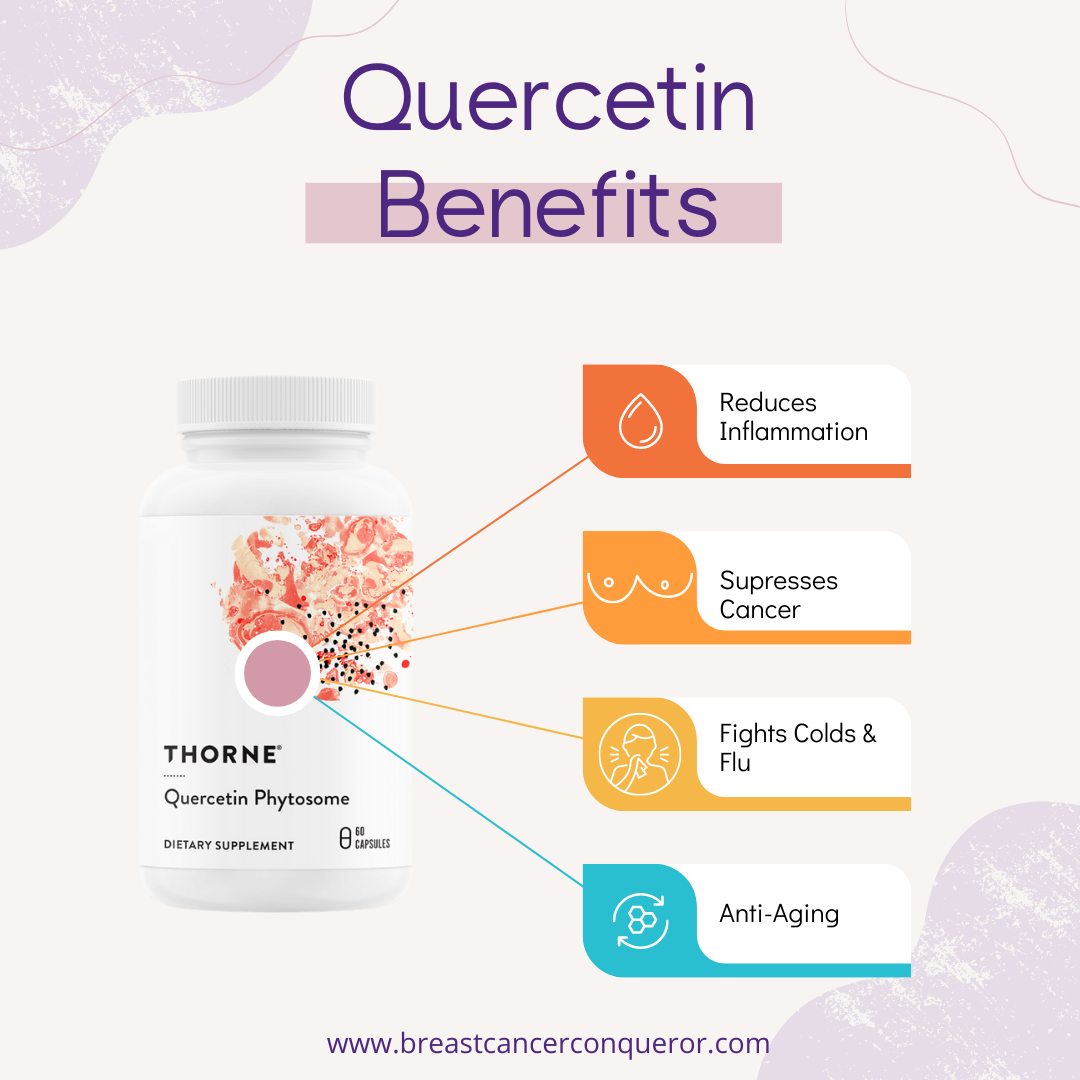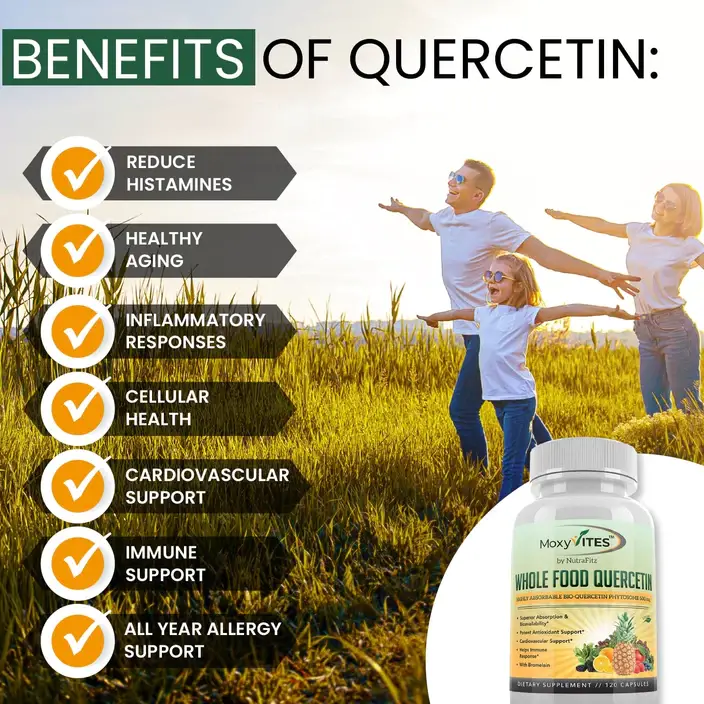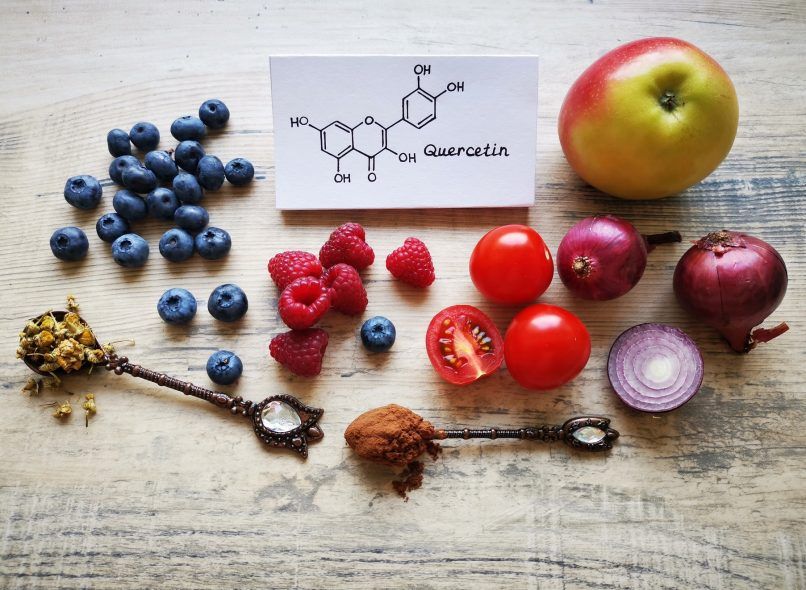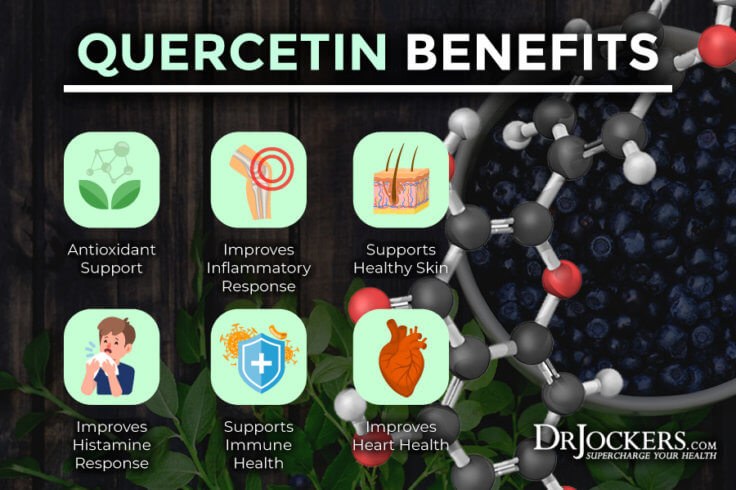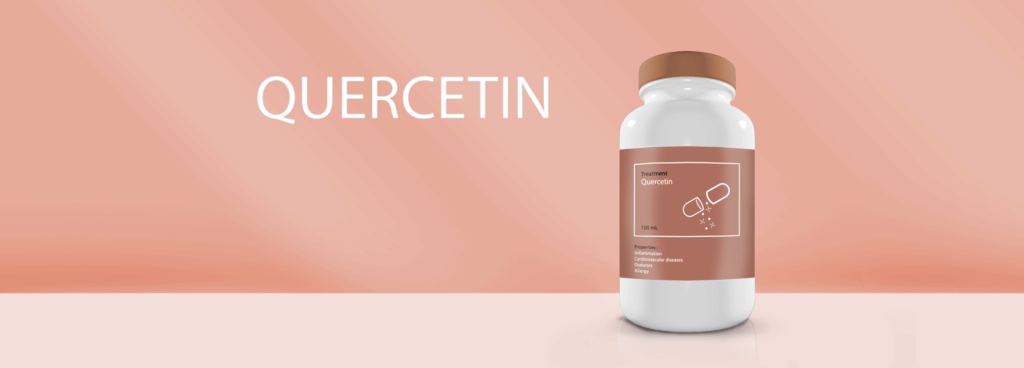How Long Does It Take For Quercetin To Work

In a world increasingly focused on natural health solutions, quercetin has emerged as a prominent player. Touted for its antioxidant and anti-inflammatory properties, this flavonoid is found in various fruits and vegetables. But as interest in its potential benefits surges, a critical question remains: How long does it take for quercetin to work?
This article delves into the science behind quercetin's efficacy, exploring the factors that influence its absorption, bioavailability, and the timeline for experiencing its purported effects. Understanding the complexities surrounding quercetin's action is crucial for consumers seeking realistic expectations and informed decisions about its use.
Understanding Quercetin: A Primer
Quercetin is a naturally occurring pigment found in many plants. It belongs to a group of plant compounds called flavonoids, known for their antioxidant properties. Foods rich in quercetin include onions, apples, berries, and leafy green vegetables.
Research suggests that quercetin may offer a range of health benefits. These include reducing inflammation, boosting the immune system, and potentially protecting against certain chronic diseases, although more research is needed to confirm these effects.
Factors Influencing Quercetin's Absorption and Bioavailability
One of the biggest challenges with quercetin is its poor bioavailability. This means that the body doesn't readily absorb and utilize it.
Several factors influence how well quercetin is absorbed. These include the form in which it is consumed (e.g., supplement vs. food), individual differences in gut health, and the presence of other compounds that can enhance or inhibit absorption.
For example, taking quercetin with fat can improve absorption, as it is a fat-soluble compound. Combining it with vitamin C or bromelain (an enzyme found in pineapple) may also enhance its bioavailability.
The Timeline for Experiencing Effects: What the Science Says
Determining a precise timeline for quercetin's effects is difficult due to variations in individual responses and study methodologies. Research findings often depend on the specific health condition being investigated and the dosage used.
Some studies suggest that acute effects, such as a reduction in inflammation markers, may be observed within a few hours or days of supplementation. However, these findings are often preliminary and require further investigation.
For chronic conditions, such as allergies or cardiovascular issues, it may take several weeks or even months of consistent quercetin intake to experience noticeable improvements. Many studies investigating long-term effects use supplementation periods of 8-12 weeks.
Acute Effects: Short-Term Studies
Some research indicates that quercetin can exert relatively rapid effects in certain contexts. A study published in the Journal of the American College of Nutrition, for instance, explored the impact of quercetin on exercise-induced inflammation.
The results suggested that quercetin supplementation may reduce markers of inflammation and muscle damage following strenuous exercise. The observed effects appeared within a few days of supplementation.
Chronic Effects: Long-Term Studies
When it comes to chronic conditions, the timeline for experiencing benefits with quercetin may be longer. Research published in the journal Nutrients examined the effects of quercetin on cardiovascular health.
The study found that consistent quercetin supplementation over a period of 8 weeks led to improvements in blood pressure and cholesterol levels. These findings suggest that sustained intake is necessary to achieve meaningful benefits in this context.
Dosage and Form: Impact on Efficacy
The dosage and form of quercetin also play a significant role in its effectiveness and the time it takes to see results. Most studies use dosages ranging from 500mg to 1000mg per day, often divided into multiple doses.
Different forms of quercetin, such as quercetin dihydrate, quercetin aglycone, and liposomal quercetin, may have varying bioavailability. Liposomal quercetin, in particular, is often touted for its enhanced absorption.
It's essential to consult with a healthcare professional to determine the appropriate dosage and form of quercetin based on individual needs and health conditions.
Potential Side Effects and Interactions
While quercetin is generally considered safe, it's important to be aware of potential side effects and interactions. Some individuals may experience mild gastrointestinal discomfort, such as nausea or stomach upset.
Quercetin can also interact with certain medications, such as blood thinners and antibiotics. It's crucial to inform your doctor about any supplements you are taking, including quercetin.
"Always consult with a healthcare professional before starting any new supplement regimen, especially if you have underlying health conditions or are taking medications," advises Dr. Emily Carter, a registered dietitian specializing in functional nutrition.
The Future of Quercetin Research
Research on quercetin is ongoing, with scientists continually exploring its potential benefits and mechanisms of action. Future studies will likely focus on optimizing its bioavailability and investigating its role in preventing and managing various health conditions.
Advancements in nanotechnology and drug delivery systems may lead to more effective forms of quercetin supplementation. These could enhance absorption and improve the overall efficacy of this promising flavonoid.
Conclusion: Patience and Informed Decisions are Key
Ultimately, the time it takes for quercetin to work varies depending on individual factors, the specific health condition being addressed, and the dosage and form of quercetin used. While some effects may be noticeable within a few days, sustained intake over several weeks or months is often necessary to experience meaningful benefits, especially for chronic conditions.
It is important to approach quercetin supplementation with realistic expectations and consult with a healthcare professional to determine the appropriate course of action. With ongoing research and a better understanding of its mechanisms, quercetin holds promise as a valuable tool in promoting health and well-being, but patience and informed decision-making are key to achieving optimal results.

-v1737406091148.webp)






